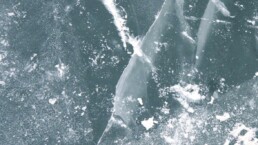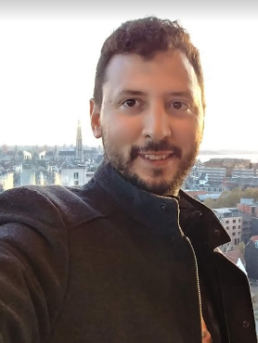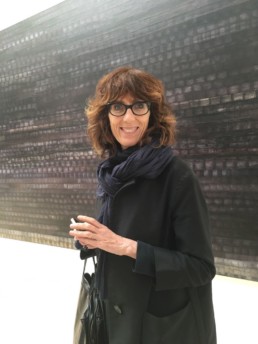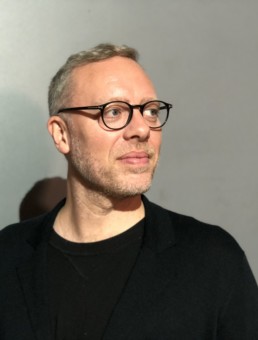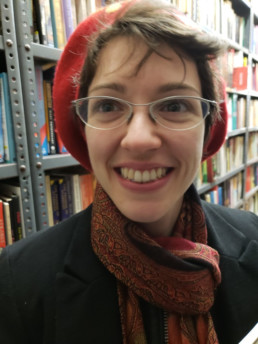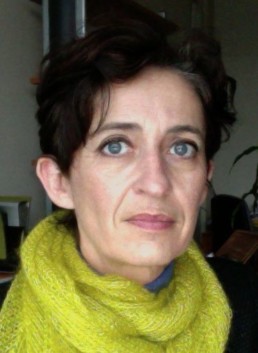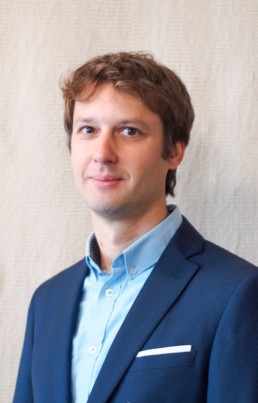Be creative!
Organizing Creativity and Attention
European Summer Academy
May 26–31, 2019, Berlin
“Be Creative!”: This is the imperative of the late modern service industries under what has been termed an “aesthetic capitalism” (Reckwitz, 2017). In an economy where “creativity is the new form of capital” (Alloa, 2018), creativity as innovation involves the constant production of the new — of the next new thing on the market, new emotionally engaging experiences, new inspiring stories, new ways to optimize one’s lifestyle, and so on (Beyes & Metelmann, 2018). This intense call for the new has intensified the necessity to adapt to novel environments and process unfamiliar packages of information, which in turn stretches attention to its limit and turns it into a scarce resource.
In light of this dynamic environment, the pressing question becomes: How are creativity and attention connected and how are they organized? This question is the point of departure for this year’s European summer academy, in which we will explore different modes of organizing creativity and distributing attention within the ‘creative’ and ‘restless’ city of Berlin.
Participating students will come from five different European universities and business schools. Lecturers will introduce their perspectives from the fields of business and management, philosophy, psychology, theatre and performance studies. These diverse backgrounds allow us to explore multiple layers of the phenomena and use multiple perspectives to make sense of the ways in which creativity and attention are organized in today’s economy. Moreover, based on critical discussions, we will also begin to experiment with ways of intervening in and shaping the current dynamics.
Course Content
Over the one week course the city of Berlin will act as a research site for group projects. Students will collaborate on their thematically focused projects that are then to be presented at the end of the week. To enable an engaged learning experience, different didactical formats will be used throughout the course, such as literature work and lectures, as well as ethnographic fieldwork, interviews, group work, performative and artistic interventions, phenomenological exercises, etc.
Course Schedule
18:30-20:00
Kick off
20:00-21:00
The Arc of the Summer Academy
8:30-10:00
Seminar
10:00-10:30
Break
10:30-13:30
Creative Berlin Guided Tour/Lecture
Lunch on the way
Boredom and the Affective Dimension of Time
14:00-15:30
Lecture and task introduction
15:30-18:30
Fieldwork
18:30-19:30
Brown bag dinner
19:30-21:00
Whole Group Reflection
8:30-10:30
Art and Performance Methods in Practice Workshop
10:30-13:00
Fieldwork
Lunch
13.30-14.30
Performance Preparation
14:30-16:00
Performance Presentation & Collective Sense-making
16:00-16:30
Final Project Assignment Introduction
16:30-17:00
Break
17:00-19:00
Territory
A one-page proposal for the final project discussing choice of research site, concept, goals, and selected medium/media is due by 19.30 on Tuesday, May 28.
19:30-21:30
Dinner (provided)
8:30-10:00
Lecture
10:00-12:30
Workshop/Fieldwork
13:00-14:00
Lunch
14:00-19:30
Fieldwork + Territory
19:30-20:30
Dinner
20.30-21.30
Whole Group Reflection
08:30-10:00
Lecture
10:00-10:30
Break
10:30-13:00
Practice
13:00-14:00
Lunch
14:00-19:30
Fieldwork+Territory
19:30-20:30
Dinner
20:30-21:30
Whole Group Reflection
9:00-11:00
Presentations of final projects (30 min presentation + 15 min Q&A per group)
11:00-11:30
Break
11:30-13:30
Presentations of final projects
13:30-14:30
Lunch
14.30-16.30
Presentations of final projects
16:30-17:00
Closing
17:00
Students depart
Notes:
- The European Summer Academy will be held at the be held at the ‘lab’ or ‘Labor’ of the Exzellenzcluster ‘Bild Wissen Gestaltung’ of Humboldt Universität, Sophienstraße 22a, 2nd courtyard, 2nd floor. The fieldwork, territory, and whole group reflection sessions will be held at different locations to be announced during the kick off.
- With the exception of snacks during the kickoff on Sunday, May 26, the dinner on Tuesday, May 28 and daily breakfast at the hostel, other meals will not be provided.
Assigned Literature
Monday, May 27
The Attention/Creativity Nexus
Andreas Reckwitz. 2017. The Invention of Creativity: Modern Society and the Culture of the New. Polity Press. (intro, chapters 1 + 5)
Timon Beyes and Jörg Metelmann. 2018. “Introduction: The Creativity Complex.” In The Creativity Complex: A Companion to Contemporary Culture. Eds. Timon Beyes and Jörg Metelmann. Transcript Verlag.
Ulrike Landfester and Jörg Metelmann. 2019. “Introduction.” Transformative Management Education: The Role of the Humanities and Social Sciences. Routledge.
Boredom and the Affective Dimension of Time
Required
Johnsen, R. 2016. ‘Boredom and Organization Studies’. Organization Studies 37 (1988). https://doi.org/10.1177/0170840616640849.
Adams, Phillips. 1993: “On being bored”. In On kissing, tickling and being bored, HARVARD UNIVERSITY PRESS.
Kendall, Tina. 2018. ‘“#BOREDWITHMEG”: Gendered Boredom and Networked Media’. New Formations 93 (93):80–100. https://doi.org/10.3898/NEWF:93.05.2017.
Recommended
Johnsen, Rasmus, Christina Berg Johansen, and Sammy Toyoki. 2019. ‘Serving Time: Organization and the Affective Dimension of Time’. Organization 26 (1):3–19. https://doi.org/10.1177/1350508418763997.
Barbalet, J M. 1999. ‘Boredom and Social Meaning.’ The British Journal of Sociology 50 (4):631–46. https://doi.org/10.1080/000713199358572.
Goodstein, Elizabeth. 2017. Between affect and history – the rhetoric of modern boredom. In Gardiner, Michael. 2017. The Boredom Studies Reader. Routledge.
Loukidou, Lia, John Loan-Clarke, and Kevin Daniels. 2009. ‘Boredom in the Workplace: More than Monotonous Tasks’. International Journal of Management Reviews 11 (4):381–405. https://doi.org/10.1111/j.1468-2370.2009.00267.x.
Tuesday, May 28
Richard Schechner. 2003. Performance Studies: An introduction, Third Edition (selection). Routledge, 2003.
Viktor Shklovsky. 1917. “Art as Technique.”
Martina Leeker. 2018. “Performativity.” In The Creativity Complex: A Companion to Contemporary Culture. Eds. Timon Beyes and Jörg Metelmann. Transcript Verlag. 184-190.
Wednesday, May 29
Bureau S., Zander I. 2014. “Entrepreneurship as an art of subversion.” Scandinavian Journal of Management 30.1, 124-133.
Jones H. 2010. “Creativity and discourse.” World Englishes 29.4, 467-480.
Flowers S. 2008. “Harnessing the hackers: The emergence and exploitation of Outlaw Innovation.” Research Policy 37, 177-193.
Thursday, May 30
Calcagno, M. 2017. Chapter 1 & (recommended) Introduction. In Interpreting Innovation. Design, Creativity, Art. Editoriale Scientifica.
Liedtka J. 2015. “Perspective: Linking Design Thinking with Innovation Outcomes through Cognitive Bias Reduction.” J Prod Innov Manag 32.6, 925-938.
Nash L. 2018. “Performing Place: A Rhythmanalysis of the City of London.” Organization Studies 1-21.
Recommended
Calcagno M., Biscaro C. 2012. “Designing the Interactions in the Museum: Learning from Palazzo Strozzi.” Int. Studies of Mgt. & Org. 42.2, 43-56.
Elsbach K & Stigliani I. 2018. “Design Thinking and Organizational Culture: A Review and Framework for Future Research.” Journal of Management 44.6, 2274-2306.
Location
Courses took place in the:
Interdisziplinäres Labor Bild Wissen Gestaltung
in ‚Hermann von Helmholtz-Zentrum für Kulturtechnik‘
Sophienstraße 22a (2nd courtyard, 2nd floor)
D-10178 Berlin
Lecturer Bios
Antoine Blanc (Paris-Dauphine University PSL)
Antoine Blanc is assistant professor of Strategy and Organization Theories at Paris-Dauphine University PSL. He is a member of the DRM Laboratory (UMR CNRS). He is the co-director of the Post-Master Humanities and Management. He teaches Organization Theories, strategy and qualitative methods for master and PhD students. His research interests are related to institutional dynamics and discourse analysis in cultural industries. His has published several book chapters and research articles in journals such as Technological Forecasting and Social Change.
Monica Calcagno (Ca’ Foscari University of Venice)
Associate professor of Design and Innovation management at Ca’ Foscari University of Venice, Department of Management. Co-founder of the laboratory on Management of arts and cultural activities (m.a.c.lab), and coordinator of Master’s degree curriculum in Innovation and marketing. Her research interests refer to the following main topics: innovation from the engineering turn to the rhetoric of creativity, design attitude in management education, user language and narratives in exhibition contexts, archives and the process of organizing, cultural entrepreneurship and social innovation. She teaches courses on Design and innovation management, and Management of cultural organisations. Among her most recent publications, “Interpreting innovation. Design creativity art” published in 2017 and a contribution on “Innovation” in Timon Bayes and Jörg Metelmann (edited by) “The Creativity Complex. A Companion to Contemporary Culture” in 2018.
Rasmus Johnsen (Copenhagen Business School)
Rasmus Johnsen is an associate professor of Humanities and Business School Education at the Department for Management, Politics and Philosophy at Copenhagen Business School. Originally trained in philosophy and literature, he has published broadly on themes such as institutional pathologies—boredom, stress and depression—but also on leadership, pedagogy and ethics. His current research includes an interest in the affective dimension of time and how it is being attended to in organization studies. Right now, he is finishing a book project with the working title A pessimist’s guide to strategy on world literature and strategy. In this book he explores strategy broadly as the human art of creating power in response to a lack of natural instinct—as a symbolic artifice that cushion us from a direct relation to reality.
Ioana B. Jucan (Leuphana University Lüneburg)
A scholar and artist, Ioana B. Jucan works across the fields of theatre and performance studies, media studies, and philosophy. Her research follows several different yet intersecting threads: mechanisms of knowledge production in the age of Big Data; simulation and dissimulation; aesthetic and political practices of world-making; and diasporic experience. Her scholarly writing has appeared in journals (parallax, Performance Philosophy, TDR: The Drama Review, Revista Caracteres) and edited volumes (Remain, Hello, I’m Eliza, Adorno and Performance, This and That). Jucan’s artistic work spans theatre directing and playwriting, multimedia performance, and installation art, and has been performed internationally. Several of her plays are collected in her book, Cosmology of Worlds Apart (NY: O Balthazar Press, 2018). Jucan is currently a post-doctoral researcher at the Institute of Sociology and Cultural Organization and affiliated with the Center for Digital Cultures at Leuphana University Lüneburg.
Véronique Perret (Paris-Dauphine University PSL)
Véronique Perret is Professor of Management at Paris-Dauphine University PSL. Member of the DRM Laboratory (UMR CNRS), she is responsible for the research team DRM-Most and the PhD program in Management Sciences of Dauphine University. Co-director of the Master “Sustainable Development and Responsibility of Organizations” she teaches strategic management, theories of organizations, epistemology and research ethics in various programs in initial and executive training. Her research interests are based on a critical approach to management. Her recent research focus on different topics as emancipation, critical performativity, critical management education and Art Based Research in Management. She is the author or co-author of several articles in journals such as Organization or M@n@gement. She is author or co-author of several book chapters as “Can Management Education practice Rancière?” edited in Beyes, T.; Parker, M. & Steyaert, C. (Eds) The Routledge Companion to Reinventing Management Education.
Florian Schulz (University of St. Gallen)
Florian Schulz is a postdoctoral researcher, psychotherapist and lecturer at the Research Institute for Organizational Psychology at the University of St. Gallen. His interests lie at the interface between psychology and organizational theory. He has taught and conducted research on management coaching, positive work relationships, the impact of networked technologies on work processes as well as on reflexive practices of self-management.
